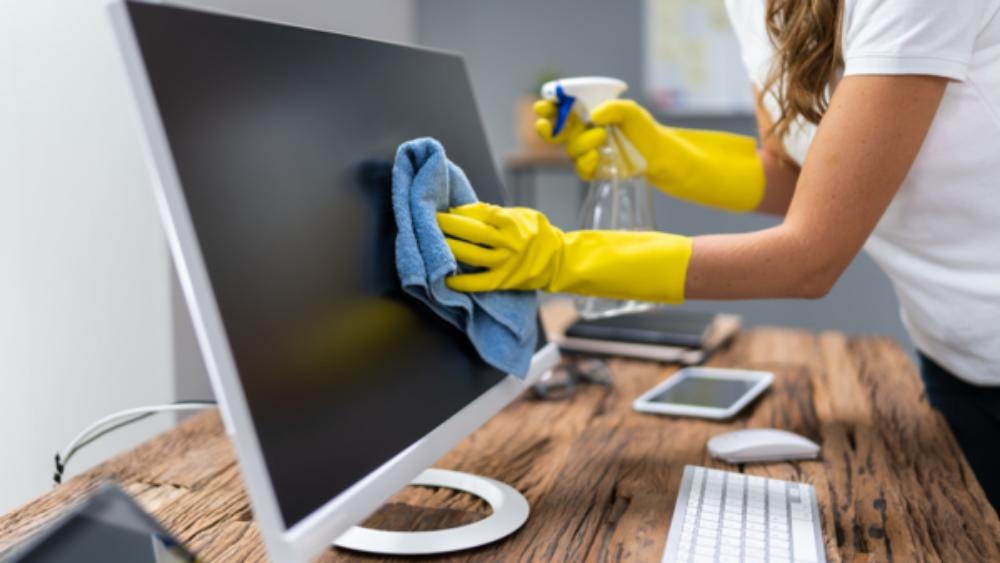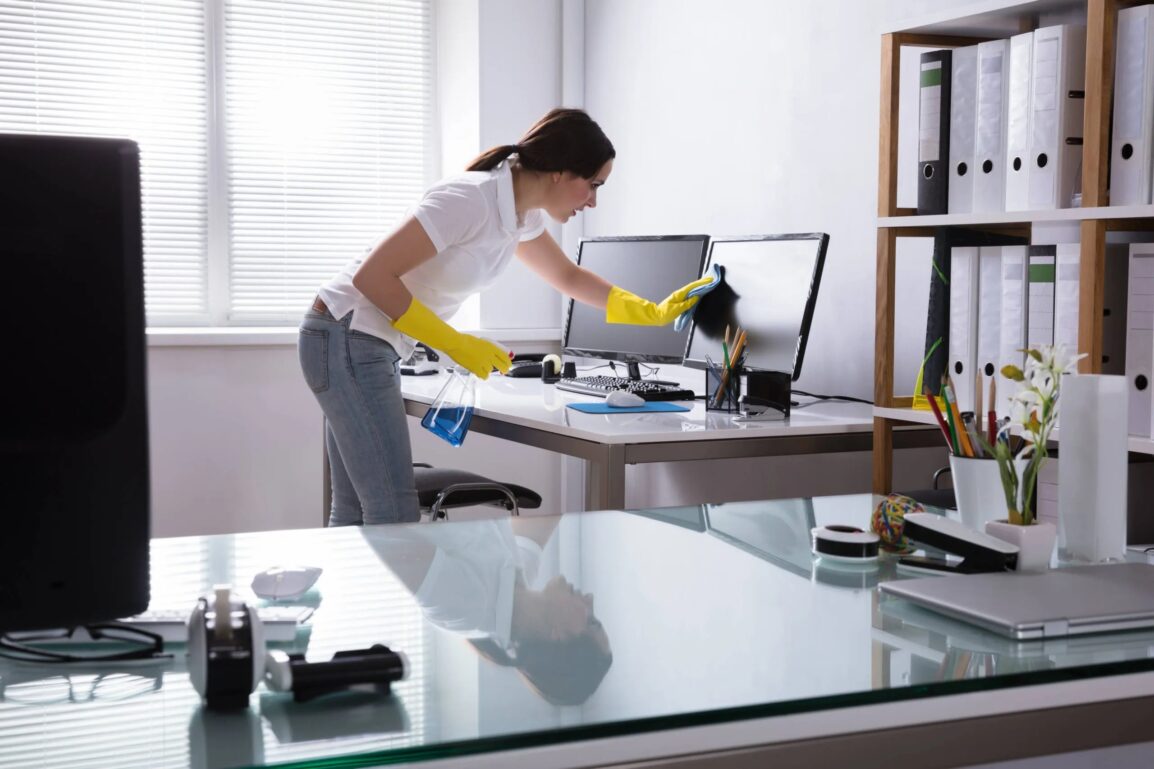A workplace sets the tone for productivity, focus, and employee well-being. A clean office creates an atmosphere where staff can feel motivated and safe.
Dust, clutter, and poor hygiene not only affect appearance but also contribute to health issues and reduced efficiency.
A commitment to proper maintenance sends a strong signal of professionalism to both employees and visitors.
Hiring a professional janitorial service plays a key role in keeping the office space free of dirt, allergens, and harmful bacteria.
Daily or weekly visits from a trusted provider ensure that desks, floors, and common areas remain sanitary.
A dedicated team can handle tasks such as disinfecting shared surfaces, managing waste, and deep cleaning carpets, all of which are vital for a healthy work setting.
Importance of Daily Cleaning Routines

Daily upkeep forms the foundation of a healthy office. Wiping down desks, computer equipment, and shared devices reduces the spread of germs.
Vacuuming or sweeping prevents dust buildup that can trigger allergies. Emptying trash bins every day ensures that bacteria and unpleasant odors do not take hold.
Simple actions, like encouraging employees to tidy their workstations, also play an important role.
Having designated spaces for documents, supplies, and personal items reduces clutter and helps maintain a more organized environment.
Deep Cleaning for Long-Term Health
Beyond daily upkeep, offices benefit from scheduled deep cleaning.
Carpets can trap allergens, so professional steam cleaning on a regular basis is essential. Upholstered furniture also requires attention since fabric surfaces collect dust, hair, and bacteria.
Ventilation systems should be inspected and cleaned to improve indoor air quality.
Restrooms and kitchen areas demand special focus. Regular disinfection of sinks, counters, and appliances keeps harmful microbes at bay.
When employees feel comfortable using these shared spaces, overall morale and health improve.
Employee Participation and Responsibility
Cleanliness should not fall entirely on external providers. Employees can contribute by respecting shared spaces.
Simple habits such as wiping spills immediately, returning dishes to the kitchen, or disposing of waste correctly make a significant difference.
Management can also encourage responsibility through clear guidelines.
Posting reminders about hygiene practices, providing sanitizing wipes, and making cleaning supplies accessible ensures that staff can take action when needed.
A culture that values cleanliness supports a healthier workplace for everyone.
Benefits of a Healthy Office

A well-maintained office offers measurable advantages. Employees who work in clean environments report fewer illnesses and greater job satisfaction.
Reduced absenteeism directly benefits productivity. A tidy space also strengthens the image of the company in the eyes of clients and partners.
Another overlooked benefit is stress reduction. Cluttered environments create mental distraction and discomfort.
Clean and organized surroundings foster focus, creativity, and cooperation.
Practical Tips for Managers
Managers can establish a strong office hygiene program by combining regular professional cleaning with internal practices.
Below are a few strategies that ensure success:
- Schedule routine cleaning visits by a reliable janitorial service.
- Provide adequate waste disposal bins across all floors.
- Encourage employees to keep personal spaces neat and sanitized.
- Arrange periodic deep cleaning for carpets, vents, and furniture.
- Stock restrooms and kitchens with sufficient supplies.
Building a Lasting Routine

Consistency matters. An office cleaning schedule should be outlined and followed without interruption. Tracking tasks and assigning responsibility prevents oversights.
Involving staff in discussions about cleanliness can also strengthen cooperation and accountability.
Investing in a long-term routine pays off in the form of healthier employees, improved morale, and a more professional atmosphere.
Companies that prioritize cleanliness are more likely to enjoy smoother operations and stronger workplace culture.
Final Thoughts
A clean and healthy office environment is never achieved through one effort alone. It requires daily attention, professional support, and employee participation.
Proper planning ensures that hygiene standards are upheld, health risks are reduced, and the workplace remains inviting for everyone.
By taking cleaning seriously, a company shows dedication to both its people and its mission.
